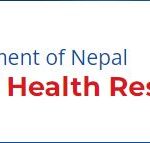On the 24th and 25th June, academics, clinicians, commissioners and public health officers gathered at the University of Central Lancashire for its second conference on Health Research with Impact organised by the UCLan’s Health Research Methodology and Implementation (HeRMI) hub.
This 2 day conference focused on evidence synthesis and implementation science, with presentations and workshops from national and international experts illustrated with examples from their research.
The conference started with several presentations of evidence synthesis: the constant challenge of keeping systematic reviews up-to date (Dr Maree Hackett, UCLan and The University of Sydney); improving accessibility of evidence for a specific clinical area through Cochrane Overviews (Dr Alex Pollock, Glasgow Caledonian University); and using qualitative evidence to inform global health care policy through improving their acceptability and feasibility for service users and practitioners (Professor Soo Downe, UCLan and Dr Claire Glenton, Norwegian Knowledge Centre for the Health Services). It was interesting that both Professor Downe and Dr Glenton highlighted that within global health policy the opportunity to demonstrate the benefits of qualitative evidence to inform policy arose when policy developed from quantitative data alone did not achieve the expected impact.
The first day finished with a workshop by Dr Alex Pollock on user involvement in systematic reviews where she described her experiences of involving physiotherapists and people with stroke to make decisions on which of the many different complex interventions should be included in a systematic review of stroke physiotherapy. This ensured that the review was relevant to both practitioners and patients. Dr Pollock demonstrated how practitioners and patients through a systematic process can be enabled to make key decisions in a systematic review traditionally performed by academics alone.
The conference then considered the context in which evidence is applied through two presentations and a workshop on Realist Evaluation (Professor Chris Burton, Bangor University and Dr Justin Jagosh, University of Liverpool). Dr Jagosh presented on the qualities of Realist methodology to help understand causation – what works, how and why? Professor Burton’s presentations focused on the context in which clinical practice occurs. The success of clinical practice/programme is determined by its interaction with the context in which it occurs and how participants (patients and practitioners) respond to them. Realist research makes theories more explicit by developing clear hypotheses about how, and for whom programmes might work.
Both Dr Lois Thomas (UCLan) and Dr Henna Hassan (Karolinska Institute, Stockholm) presented their experience of ensuring fidelity in the implementation of complex interventions. Professor Joy Duxbury (UCLan) continued the theme of implementing complex interventions in practice by presenting on reducing physical restraint in the North West NHS mental health in-patient settings. A theme throughout all of the presentations on the second day of the conference was the need to develop strong relationships between academia and practice to enable the co-production of evidence relevant to clinical practice.
 Speaking at this week’s Nepal Health Research Council conference
Speaking at this week’s Nepal Health Research Council conference










 Dr. Chloe Casey on Sky News
Dr. Chloe Casey on Sky News Final Bournemouth University publication of 2025
Final Bournemouth University publication of 2025 On Christmas Day in the Morning…
On Christmas Day in the Morning… New Nepal scoping review on maternal & neonatal health
New Nepal scoping review on maternal & neonatal health ECR Funding Open Call: Research Culture & Community Grant – Application Deadline Friday 12 December
ECR Funding Open Call: Research Culture & Community Grant – Application Deadline Friday 12 December MSCA Postdoctoral Fellowships 2025 Call
MSCA Postdoctoral Fellowships 2025 Call ERC Advanced Grant 2025 Webinar
ERC Advanced Grant 2025 Webinar Horizon Europe Work Programme 2025 Published
Horizon Europe Work Programme 2025 Published Horizon Europe 2025 Work Programme pre-Published
Horizon Europe 2025 Work Programme pre-Published Update on UKRO services
Update on UKRO services European research project exploring use of ‘virtual twins’ to better manage metabolic associated fatty liver disease
European research project exploring use of ‘virtual twins’ to better manage metabolic associated fatty liver disease